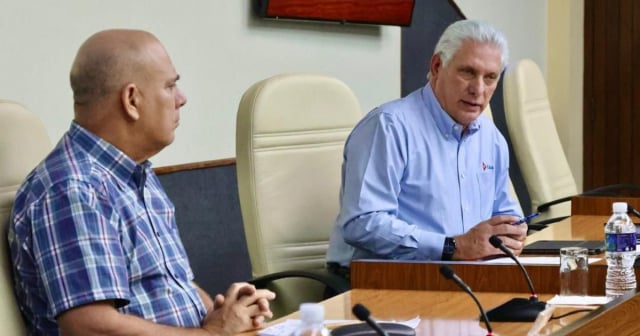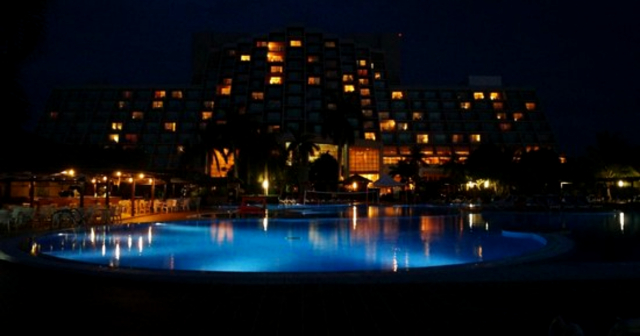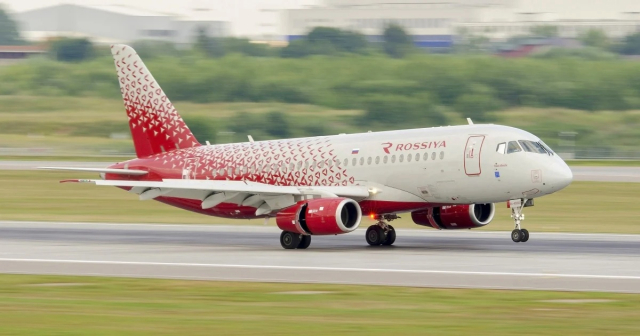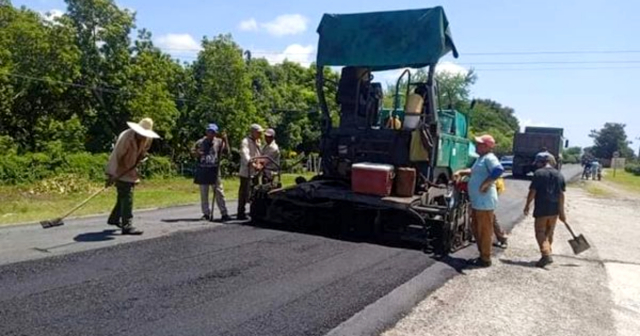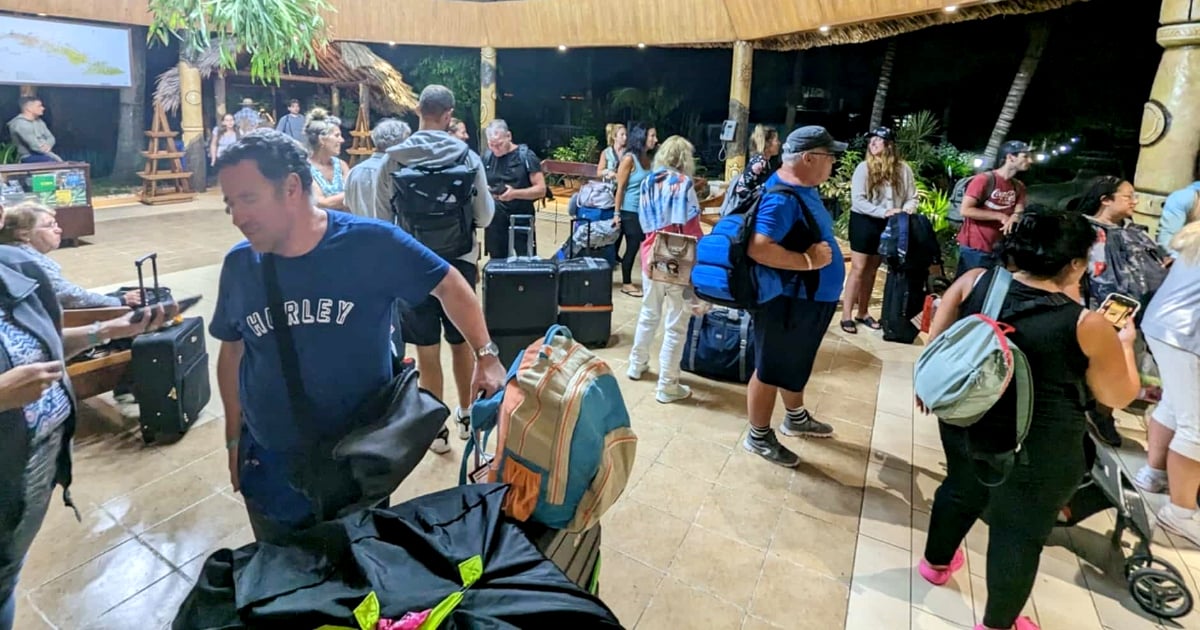
A Canadian travel agent recommended that tourists from their country refrain from going to Cuba, given the energy emergency situation caused by the collapse of the national electric system, along with the effects of Hurricane Oscar.
"They should wait at least a month," said François Laramée in an interview this Monday with the Canadian medium TVA Nouvelles after returning from a trip to the Island where he suffered the consequences of the widespread blackout that occurred last Friday, which still keeps the country in a critical situation.
Quebec tourists interviewed by the aforementioned media described their stay in the regions of Holguín and Varadero as unpleasant experiences, attributing it more to the widespread blackout than to the passing of Oscar.
The lack of electricity supply in hotel facilities disrupted all activities for international tourism that take place in these accommodations. Despite having their own generators, the inconveniences caused by the collapse of the national electric power system (SEN) are evident even among the Cuban staff attending to tourists.
"The advice I would give is to wait at least a month before traveling to Cuba, while you recover," Laramée stated. "There is a limit to believing that one can be okay in the midst of such a situation!"
According to the travel agent, the hotels "operate with generators." Laramée stayed at the Starfish in Varadero; however, other tourists who have been staying in the main tourist hub of the Island these days claimed that there are hotels where the generators do not work.
The annoying noise caused by these machines is joined by other circumstances that undermine the rest and relaxation that tourists seek. "They also didn’t give us any information!" complained Laramée, emphasizing that the Cuban employees are mostly "tired" and "exhausted."
For Sylvie Beaulne, a Quebecer who travels regularly to Cuba, the situation is especially concerning, particularly due to the humidity, the rain, the mosquitoes, and the lack of food.
“Cubans are hungry, they are sad, their hearts hurt [...] People should not travel at this time, but rather bring food,” the woman explained to TVA Nouvelles.
Beaulne, who had been in Varadero since October 14, described a bleak scenario. “The situation is very difficult for Cubans. Yesterday I went fishing and there were dozens of people trying to fish to sell it [...] Some windows of governmental establishments were also broken, a revolt might occur.”
Caroline Giasson, another travel agent staying in the Holguín region who was interviewed by the aforementioned media, acknowledged that Cubans "make great efforts to accommodate us despite the fact that they themselves don't have much."
"Finally, I was supposed to leave today [Monday], but there is a problem at the airport. The computers are not working and Monday's flights are postponed to Tuesday," Giasson added.
Regarding the possibility of more Quebec tourists traveling to Cuba, the travel agent was cautious. "We need to be aware of the situation and that anything can happen," she analyzed. "If you are an anxious person and need stability, it can be stressful."
Until this Monday, the Canadian government had maintained warnings of "extreme caution" and advised against all non-essential travel to Cuba and its eastern regions of Guantánamo, Holguín, and Las Tunas.
Incidents and decline of Canadian tourism in Cuba
Canada, the main source of tourists to Cuba, primarily to the beaches of Varadero and the northern cays of the island, is beginning to show signs of exhaustion in this Caribbean destination, marked by the deterioration of its facilities, poor culinary offerings, thefts, and the atmosphere of oppression that prevails.
At the beginning of June, a group of 38 Canadian tourists traveling on a Transgaviota bus had an accident while heading to Villa Clara airport from Cayo Santamaría.
In the incident, the driver of the other vehicle involved lost their life, and 26 tourists were injured, some of them with injuries that required hospitalization, such as the elderly woman who sustained brain damage.
Although the authorities and the official press of the Cuban regime were silent about the nationality and identity of the injured tourists, the information was published by Canadian media.
The accident, which drew international attention, primarily involved tourists from Quebec traveling on flight TS715 to Montreal. According to TVA Nouvelles, the airline Air Transat reported that some of the injured would return to Canada in two groups, taking into account the hospitalization of several of the victims.
At the end of April, a couple of Canadian tourists experienced what they described as a nightmare when they required medical services offered in Cuba due to an urgent operation.
Caroline Tétrault and Christian Maître, residents of the Canadian city of Shawinigan, were supposed to return to the northern country on April 4 after a vacation in Cuba, but the day before their flight, sharp pains in the woman prevented that trip.
Caroline suffered from peritonitis and required urgent surgical intervention, which showed her the less visible side of the Cuban medical world.
"There is no light, there are dogs, it is really suspicious, it is truly a horror movie scenario," Maître described to Radio Canada without specifying the name of the hospital where they were treated. Images shared by the tourists showed the deplorable state of the hospital facility.
In mid-June 2023, a breakage in a Sunwing aircraft caused a group of Canadian tourists vacationing in Cayo Santa María to be relocated until the technical issues were resolved.
“Sunwing left us in a pile of shit,” said Ludovivic Murat to the Quebec news agency QMI. Shocked by the handling of the incident, the tourists elaborated on their nightmare.
First of all, there weren't enough rooms for all the travelers. But the worst part was the sanitary conditions of the tourist facility. Photos and videos taken by tourists show insects on the floor and on a bed, while in another, bats can be seen at the entrance of the hotel.
What do you think?
COMMENTFiled under:


